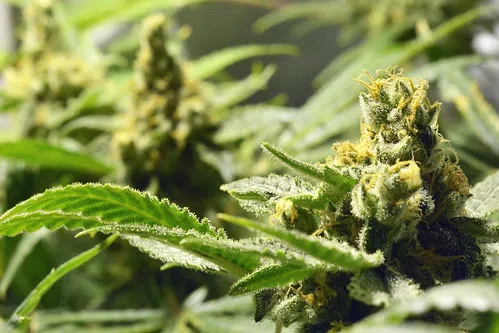Less than 10 per cent of companies have experienced cannabis-related incidents in the workplace since legalization according to a new survey by the Canadian Federation of Independent Business (CFIB).
Eight per cent of companies surveyed reported an incident of some kind, but that number rises to 22 per cent for businesses with 100 to 499 employees, according to the preliminary data.
Louis-Philippe Gauthier, CFIB’s director of provincial affairs for New Brunswick and Prince Edward Island, said “incidents” don’t just mean cannabis-related workplace injuries.
“Based on our research, it’s incidents of all kinds,” he said. “It’s having to chat with the employee because they appeared to be under the influence or the manager or business owner had the impression that the employee was under the influence.”
The survey released last week found nearly six in 10 business owners in Canada ranked their provincial government’s efforts to educate them on their responsibilities and the relevant rules and regulations around cannabis legalization as poor or very poor.
For a lot of companies where physical safety is always a concern, policies around cannabis use were already in place.
But some sectors did have higher levels of incident reports, according to the survey. Hospitality businesses were most likely to report having had an incident at 16 per cent.
Paulette Hicks, general manager of the Saint John Delta Marriott and president of the Saint John Hotels Association, says she hasn’t heard of any incidents around cannabis at her hotel. She says Delta’s policy around cannabis fits under its already established rules around an employee’s fitness for work.
“We’ve had strong policies in place around fit-for-work and we felt as this was pending to become legalized, our policies already aligned, whether it’s under the influence of alcohol or any prescription drugs,” said Hicks. “There is a health and safety component obviously when you come to work around being fit for work and that’s something that’s been a really solid culture that we embedded.”
She hasn’t heard of any incidents at other hotels in the industry but says smaller businesses in the hospitality industry could have faced issues.
“[CFIB]’s members tend to be very small and they may not have the HR resources, but a lot of this really is policy and process,” said Hicks. “The information was there and if you applied it then at the end of the day you mitigate this sort of stuff, but I get small businesses may not have all the resources.”
Though the survey showed that many small businesses didn’t feel they were given enough resources by their respective provinces, Gauthier said CFIB still offers resources on their website to help businesses get started on creating and communicating policy around cannabis in the workplace.
“When cannabis was initially legalized, we took the opportunity to no only inform our members at CFIB, but we made a whole series of templates and education materials for business owners freely available for all businesses across the country,” he said. “It is definitely the main recommendation we would have for employers is to make sure they have a policy and that it’s well communicated to employees.”
A version of this story was published in Huddle, an online business news publication based in Saint John. Huddle is an Acadia Broadcasting content partner.







